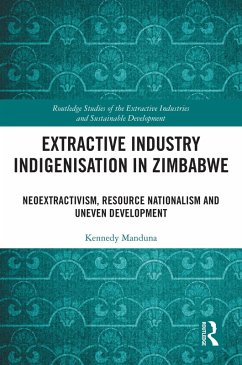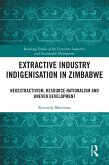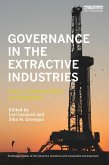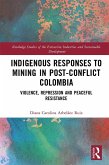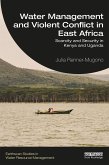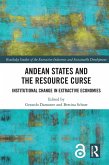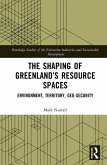This book traces the history of uneven development in Zimbabwe from the initial days of colonialism to the present, using the extractive industry as the unit of analysis to carve out a granular and empirical analysis of the preponderance of transnational corporate control and ownership in the country. Indigenisation of Zimbabwe's extractive industries was intended to address mining inequalities by transferring wealth from rich non-Indigenous mining capital to disadvantaged Indigenous citizens and communities. This policy, however, was a response to political, economic, and social crises posed by the international isolation of Zimbabwe's government following the controversial Fast Track Land Reform Programme in 2000-2003. An intervention, therefore, which promised to address inequalities has thus been hampered by corruption, co-optation, and collusion which has led to it not only failing to address uneven development, but in actual fact worsening the situation. By examining the hidden structures and infrastructures of power, capital, and minerals and placing extractive industry Indigenisation in capitalism, this book makes a crucial scholarly contribution to the renewed and burgeoning debates around the resurgence of resource nationalism in general and the struggle for economic sovereignty in particular. This book steers readers more broadly to look for new and diversified ways of empowering Indigenous populations and their communities through mining Indigenisation in ways that do not threaten economic and political stability.
This book will be of great interest to students and scholars of the extractive industries, natural resource management, African politics, and African development.
Dieser Download kann aus rechtlichen Gründen nur mit Rechnungsadresse in A, B, BG, CY, CZ, D, DK, EW, E, FIN, F, GR, HR, H, IRL, I, LT, L, LR, M, NL, PL, P, R, S, SLO, SK ausgeliefert werden.

